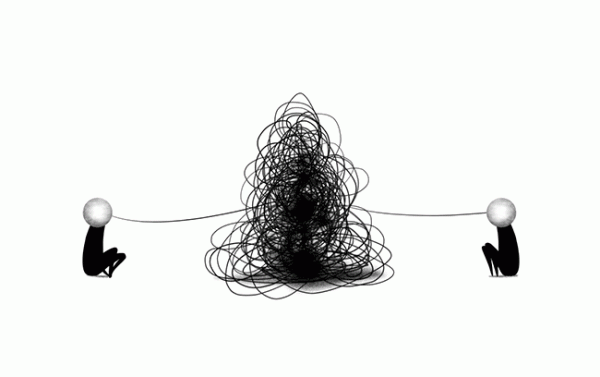Psychologists Can Offer Valuable Help, but They Aren't Miracle Workers

Psychologists play a very important and necessary role in society. However, there are still several unfounded beliefs, myths, and expectations that obscure the true objective of consulting these professionals. The most widespread and erroneous vision about going to therapy is believing that psychologists work wonders. But this couldn’t be farther from the truth. Psychologists aren’t miracle workers.
Many people feel disappointed when they turn to these professionals. However, people have to make the following choices when choosing a mental health professional. First of all, you must find the psychologist that best suits you. Also, you have to find the therapy that best suits your needs. On the other hand, it’s important that you have an open mind and willingness to work during therapy. You’re the one who has to strive to achieve your goal. The psychologist is only there to help.
“You choose where and you decide until when because your path is exclusively yours.”
-Jorge Bucay-
Psychologists don’t do miracles, they push us
It’s true that psychologists don’t do miracles no matter how much we want them to. Nor will you get to sit on a stretcher and expect everything to get solved with a magic pill. There will be no anesthesia and your participation is required. In addition, people may not want to go back to a psychologist. More than anything, this is because psychologists make us uncomfortable. They ask difficult questions, urge the patient to see things with different eyes, or make them see they’re responsible for what happens to them. Moreover, they force the patient to take responsibility for their actions. Psychologists offer valuable help, but they don’t do miracles.

Many people go into a psychologist’s office complaining and feeling like the victim. However, they soon feel that the therapist is trying to take away the protection of their victimhood. For example, if a person goes to therapy because their partner is being unfaithful and the psychologist asks them, “And why are you still in that relationship?” they may take this badly. They may respond in the following way as if the answer was obvious: “Because I love them.”
However, as the therapy progresses, people may become resistant to therapy and reject the “no help” they believe the therapist is giving them because, basically, they aren’t hearing what they want to hear. Maybe they wanted a magic formula for their partner to stop being unfaithful or approval of their own behavior. When faced with the realization that the most feasible option may be to end the relationship, may make the person take their frustration and refusal out on the therapist.
A psychologist makes the patient reflect on their situation so that they reach their own conclusions. When these don’t coincide with their wishes or how they see reality, it’s very possible that they’ll reject the psychologist and not go back to therapy.
Many times, when a patient goes to a psychologist, they want someone to tell them they’re right or give them a magic formula to solve the situation. However, this isn’t realistic and is often a response to fears and insecurities. Psychologists can help with grieving, but can’t bring the person the patient has lost back to life.
What is our role as patients in therapy?
It’s important to be aware of not only the psychologist’s role but also the patient’s. To begin, as we’ve already said, psychologists don’t do miracles. They’re there to listen, provide tools, and open up the field of possibilities when the patient is seeing everything with a narrow focus.

A psychologist will never tell us what to do or make decisions for us. However, it’s possible that we may need to do some self-esteem exercises, work with our insecurities, or overcome some fears. This means getting rid of the obstacles that are keeping us from achieving our goals. This is what psychologists do. They can give us the necessary tools to feel better about ourselves, increase our confidence and self-esteem, help us face fears, and improve how we relate to others.
This doesn’t mean that we need to work on making decisions in therapy. There are many different effective strategies for this. The psychologist in this sense can serve as a blackboard to order ideas or to delve into different hypothetical situations. But they will not tell us what to do and, in many cases, they will not tell us what they would do in our place, simply because they’re not in our shoes.
In any case, this doesn’t make your role less valuable and essential. Thanks to this guided help, whatever decision we’re tackling with will probably end up being easier or less painful. We’re the ones who have to take the step. We know what to do, we’re aware of what would make us better. We just have to make a decision and put it into action. With psychology, we can get the necessary tools to do it.
This text is provided for informational purposes only and does not replace consultation with a professional. If in doubt, consult your specialist.








